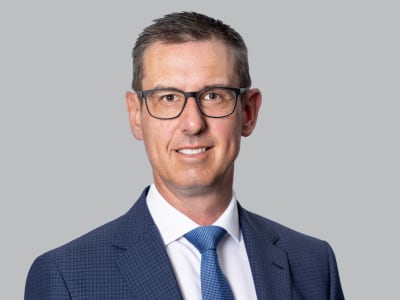In late 2023 outgoing Australian Taxation Commissioner Chris Jordan warned businesses to stop using unpaid tax and superannuation liabilities to prop up their cashflow.
According to the Australian Financial Review (AFR), Mr Jordan said: “This includes non or late payment across all business segments, including small businesses.
“I am unapologetic about this. The Australian Taxation Office (ATO) is not a bank offering cheap loans and a cashflow buffer. Paying tax isn’t optional.”
Other creditors, in addition to the ATO, also appear to be out of patience. The number of court-appointed company liquidations in the first six months of the 2023-24 financial year – 1,031 – is already nearly equal to total wind-ups for the entire 2022-23 financial year (1,081), putting court actions on track to double, according to insolvency data from the Australian Securities and Investments Commission (ASIC).
We spoke to Jonathon Colbran, RSM Partner Restructuring and Recovery, based in both Canberra and Melbourne, in February 2024. He shared insights about what he is seeing on the insolvency, restructuring and recovery front - day in, day out, and what people should do if they are experiencing financial difficulties.
FAQS
“Concerningly, in addition to the usual insolvency hot spot sectors such as hospitality, construction, retail, manufacturing and transport, I am also seeing increased stress across less common sectors including the not-for-profit (NFP), professional services and medical services sectors.
Some financial distress situations that have now become apparent and urgent, may have been building up for some time. Questions around the sustainability of these businesses or organisations are now being asked. The available options being considered may include merging, insolvency exit strategies or business improvement solutions.”
“For NFPs in particular, one common factor is funding being a perennial challenge. Cost-of-living pressures may also mean it’s tougher right now to secure donations. Wages for NFPs can be a significant, on-going cost to carry, and in some cases Board Members aren't fully aware of the risk and potential financial liability that they personally bear.
“NFPs often make important contributions in communities throughout Australia, but ultimately if the organisation is cash-strapped and debt-laden, without a restructuring or turnaround plan, 2024 could be the year of financial reckoning.”
There has certainly been a sharp increase since January 2024 in the requests for assistance that we are receiving from boards of NFP enterprises requesting confidential safe harbor advice. Since June last year, we have also seen a marked increase the number of Boards approaching us to assist them confidentially in the background to better understand what their plan B options are in their event that their turnaround strategy fails. This type of approach is always our recommended approach for Directors of NFP boards who carry the inherent personal risk as Directors if the enterprise ultimately fails and a Liquidator alleges that the Directors may have breached their duties or insolvency traded. But it is also an indicator that NFP Boards are increasingly concerned about a number of things.
“There has been an increase in the number of people coming to the RSM team with Director Penalty Notices (DPNs) issued by the ATO as a result of unpaid tax or superannuation.
There are two types of DPNs; the first is a traditional notice where the director receives a warning and they then have 21 days to act to avoid liability. The second type of notice, a lockdown penalty notice, is an automatic personal liability notice.
We know it can be extremely stressful to receive a DPN, but the sooner professional advice is sought, the better.
“If you’re worried about a tax or super debt that’s accumulating, don’t wait to receive a DPN - get in touch with your trusted advisor now. They will help you and they may also loop us in. We have successfully saved a number of businesses and organisations through restructures and the common ingredients involve business owners or directors being proactive and bringing us in earlier to map out their options and implementing a bespoke strategy.”
“The pandemic, along with natural disasters including floods and fires in recent years, led to the ATO taking a softer approach to enforcing payments. To some extent this may have normalised having a tax debt for some business owners or directors.
"We know in reality when times are tough, business owners and directors tend to do what they can to save money and keep the cashflow going. Paying tax is typically not at the top of the priority list, but in recent months there's clearly been a policy shift around tax debts and this is putting pressure on business cash flows."
"With the recent ATO policy shift, taking the approach of ‘I’ll come back to that tax debt later, when I can’ isnt going to cut it any longer.”
“Yes, sometimes the lines between business and personal expenses can become blurred. Particularly in the small business sector, I’m seeing business owners who have drawn cash from the business to fund things like private school fees or home improvements - relying on future business profits to cover the difference.
In most cases those drawings correlated with what would have been considered ‘good times’, but in sectors like construction, those business profits that were anticipated when the drawing of funds happened, may not have been realised. Record years in business may have been followed by consecutive losses.
Taking working capital or cash out of a business does come with risks and can limit your ability to pay creditors, suppliers and the ATO.
What we're finding is that the merry-go-round might be slowing down for some business owners, or in some cases, actually stopping and they are getting caught by overspending from the past.”
“Burnout is a big pressure point for lots of people. Often my clients and directors of businesses that we are assisting have been so focused on trying to deliver in their role as a business owner, that they have limited time to actually run the business. Inefficiencies in invoicing and billing, and even accrued tax debt can lead to business failures.
In our role, working with people who may be financially stressed and burnt-out, it’s vital to have empathy. We never see our appointments as jobs and we always have a mantra of working hard to help everyone involved.”
“Yes, I think it’s common for people to avoid putting their hand up and admitting they're having financial difficulties because they view that as a failure - but we certainly don’t see it that way.
Some of the most successful people in history, whether they be inventors, elite sports people or business leaders have all made mistakes - no one's perfect.
The reality is that in business, you can't always win. Businesses fail for many reasons - sometimes it may be in the control of the business owner, sometimes it’s not. Either way, our expert team is here to help explore the available options.”
“I genuinely enjoy helping people make better financial decisions in tough situations.
Every day, my team and I are actively helping people to discover solutions they often weren't aware even existed.
Whether it be assisting lenders recover their loans, directly solving a problem by compromising a million dollar tax debt for cents in the dollar, or helping someone save their family home, we’re helping people draw a line in the sand and have certainty about their next financial steps.
We always ask our clients, ‘What would you like to achieve?’ And then we set about mapping-out their different available options to achieve their objectives.”
Ready for a free, confidential chat? We’re here to help.
Whether you're a business owner, director or an individual experiencing financial difficulties, our team can help you understand your options, and make informed decisions. Contact us for a free, initial call.
If you or anyone you know is experiencing financial distress and needs mental health support, please contact:
- Lifeline on 13 11 14
- Beyond Blue on 1300 224 636
- Headspace on 1800 650 890





